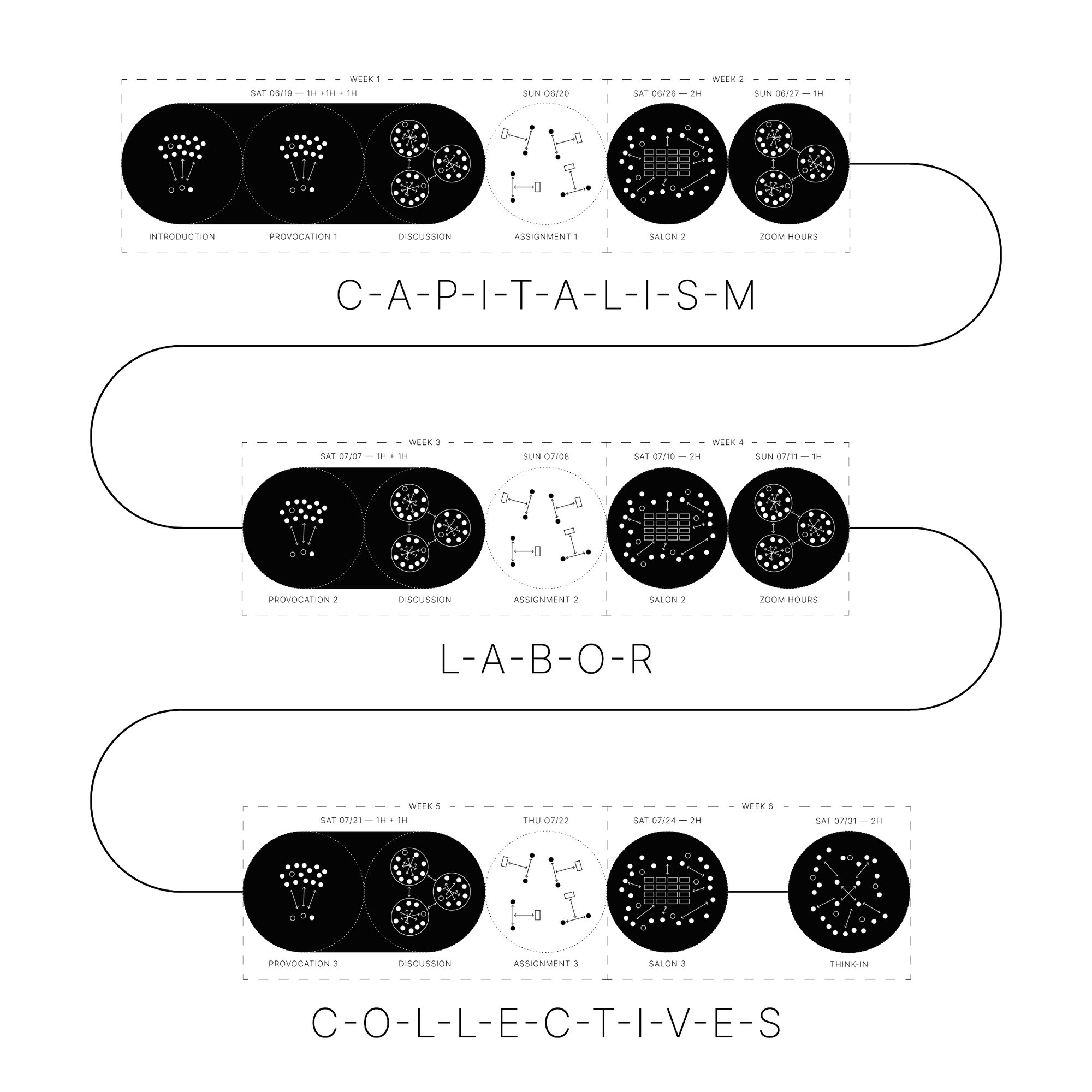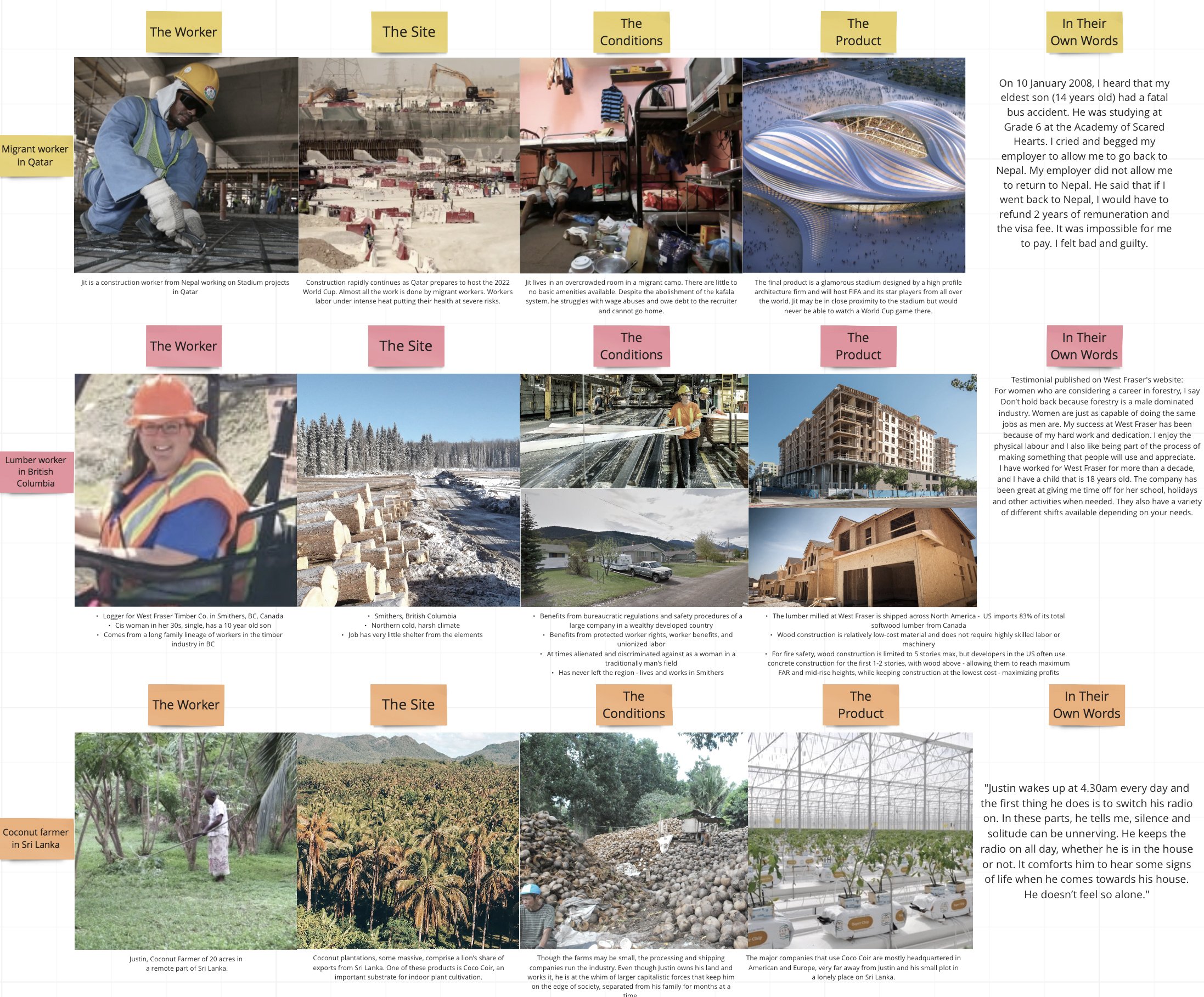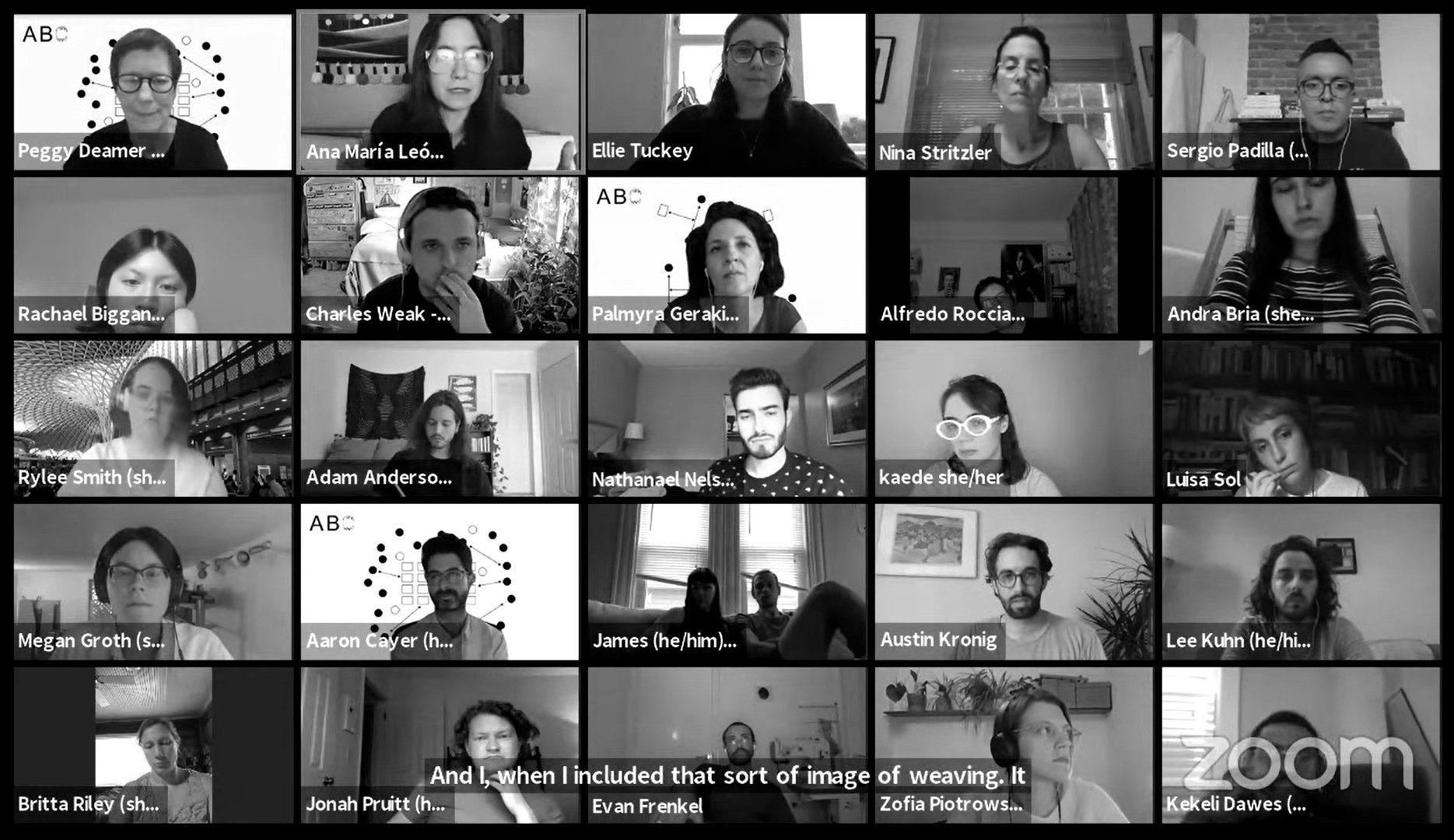“Beyond Capitalism? Organizing Architecture Education,” Journal of Architectural Education, 76:2 (2022), 34-42.
with Frank Burridge, Kirsten Day, Peggy Deamer, Andrea Dietz, Jessica Garcia Fritz, Palmyra Geraki, Daniel Jacobs, Valérie Lechêne & Natalie Leonard
A power map of an electric toothbrush; an influencer; an architecture license. An organizational map linking the precarity of a construction worker to a window cleaner to an asset manager. A resource map of a public university; an architecture firm; a food coop. These collaborative projects emerged during a free and virtual summer school named Architecture Beyond Capitalism (ABC), which launched in 2021 as an experiment in architecture education. Organized by members of The Architecture Lobby, the ABC School’s planning, structure, and participation revealed insights about academia’s subservience to capitalism. The school focused on organizing—with practitioners, educators, students, and the public—as a pedagogical practice that could unite historically fragmented sites, workers, and concerns of architecture education in order to meet the structural challenges of the current planetary crises.
The seven-week-long summer school formed in response to the siloed and uncoordinated nature of education within architecture—design schools offer professional degrees for students; the profession promotes independent courses for continued licensure; firms sponsor classes and exchanges to further internal knowledge; and academic organizations provide educators with opportunities for discourse and disciplinary debate. Yet despite the siloed nature of architecture education, students, teachers, and architects alike have been conditioned across these sites to prioritize aesthetic objects over the systems by which they are bound and to accept the precarious nature of architectural work.
This segmentation of architecture education is paralleled by an enduring obsession with what is taught within academies—the “content”—which has made considerations of structure, method, and community difficult, such as how one teaches and who might be able to teach or access architecture education in the first place. As concerns about endowments and profit increasingly take priority over the guiding functions of many western universities and professions, cultural production is replaced by hollow and self-referential terms. “Content” has come to mean everything and anything that can be consumed—even claims of “critical pedagogy” itself. Terms derived from the history of business, such as “innovation,” “leadership,” “growth,” “excellence,” and “performance” have become the defining metrics within architecture education; it is evident that the business of architecture and the education of architects are now indistinguishable. Inward-facing accreditation criteria and curricula prioritize course topics over pedagogy and well-being, licensure exams prioritize business over the environment and community, and a persistent culture of exploitation is maintained and reproduced across states and national borders, generations, and work sectors.
The ABC School aimed to consider how the terms of capitalism have historically prevented structural change by demanding perpetually new content, as well as how new pedagogies based upon the techniques and principles of organizing might encourage change across architecture’s siloed sites: students learning with practitioners; faculty learning with students; members of the public learning with all of the above. The school was inspired by the intersectional work of thinkers such as bell hooks and Paulo Freire who challenge the “banking system” of education by connecting critical pedagogy to labor organizing. Organizing was imagined to be central to reconstructing the discipline of architecture and society at large.
Click here to download the full article.



